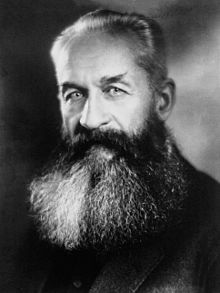Prince Georgy Lvov
| Georgy Lvov Георгий Львов |
|
|---|---|
 |
|
| 1st Minister-Chairman of the Russian Provisional Government | |
|
In office 15 March 1917 – 21 July 1917 |
|
| Preceded by |
Nikolai Golitsyn (Prime Minister of Russia) |
| Succeeded by | Alexander Kerensky |
| Minister of Interior | |
|
In office 15 March 1917 – 21 July 1917 |
|
| Prime Minister | Himself |
| Preceded by | Alexander Protopopov |
| Succeeded by | Nikolai Avksentiev |
| Prime Minister of Russia | |
|
In office 15 March 1917 – 21 July 1917 |
|
| Preceded by | Nikolai Golitsyn |
| Succeeded by | Alexander Kerensky |
| Personal details | |
| Born |
Georgy Yevgenyevich Lvov November 2, 1861 Dresden, Saxony, Germany |
| Died | March 7, 1925 (age 63) Paris, France |
| Nationality | Russian |
| Political party | Constitutional Democratic |
| Alma mater | Moscow State University |
| Profession | Politician |
Prince Georgy Yevgenyevich Lvov (Russian: Гео́ргий Евге́ньевич Львов; 2 November 1861 – 7/8 March 1925) was a Russian statesman and the first post-imperial prime minister of Russia, from 15 March to 21 July 1917.
Prince Lvov was born in Dresden, Germany, and descended from the sovereign Viking princes of Yaroslavl. His family moved home to Popovka in the Aleksin district of Tula Governorate from Germany soon after his birth. He graduated from the University of Moscow with a degree in law, then worked in the civil service until 1893. During the Russo-Japanese War he organized relief work in the East and in 1905, he joined the liberal Constitutional Democratic Party. A year later he won election to the First Duma, and was nominated for a ministerial position. He became chairman of the All-Russian Union of Zemstvos in 1914, and in 1915 he became a leader of the Union of Zemstvos as well as a member of Zemgor, a joint committee of the Union of Zemstvos and the Union of Towns that helped supply the military and tend to the wounded from World War I.
He married Countess Julia Alexeievna Bobrinskaya (1867–1903), great-great-granddaughter of Grigory Orlov and Catherine the Great, without issue.
During the first Russian Revolution and the abdication of Nicholas II, emperor of Russia, Lvov was made head of the provisional government founded by the Duma on 2 March. Unable to rally sufficient support, he resigned in July 1917 in favour of his Minister of War, Alexander Kerensky. Lvov was arrested when the Bolsheviks seized power later that year. He escaped and settled in Paris, where he spent the rest of his life.
...
Wikipedia
